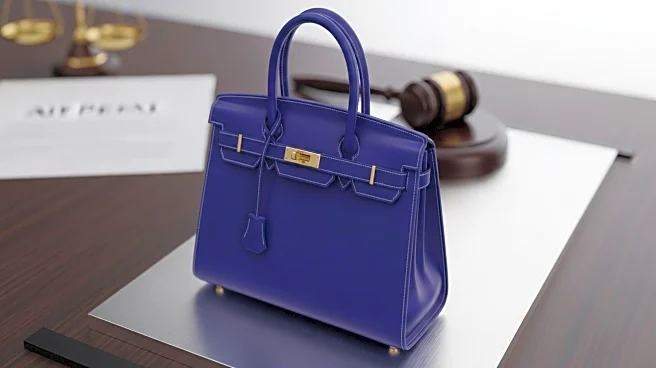What's Happening?
Consumer plaintiffs Tina Cavalleri and Mark Glinoga have filed an appeal with the U.S. Court of Appeals for the Ninth Circuit following the dismissal of their antitrust case against Hermès by the Northern District of California. The plaintiffs initially filed the lawsuit in March 2024, alleging that Hermès engaged in anticompetitive practices by controlling the allocation of its Birkin bags. The district court dismissed the case, stating that the plaintiffs failed to define a relevant product market and demonstrate Hermès' market power or anticompetitive effects. The appeal will challenge whether the district court correctly applied antitrust pleading standards and whether the plaintiffs adequately alleged a relevant market and market power.
Why It's Important?
The appeal is significant as it addresses the intersection of luxury brand strategies and antitrust law. Hermès' practice of controlled access and cultivated scarcity for its Birkin bags raises questions about whether such strategies constitute market power. The outcome of the appeal could influence how antitrust law views luxury brands' distribution and client vetting practices. A decision in favor of the plaintiffs could lead to further scrutiny of luxury brands' allocation systems and potentially reshape the legal landscape regarding exclusivity and market access in the luxury sector.
What's Next?
The Ninth Circuit will review the case to determine if the district court's dismissal was appropriate. The plaintiffs are expected to argue that luxury-scarcity dynamics can define a market and that Hermès' practices constitute coercion and anticompetitive behavior. The court's decision could set a precedent for how antitrust law treats luxury brands' controlled distribution and exclusivity strategies. If the appeal is successful, it may lead to further discovery into Hermès' allocation practices and impact the company's relationship selling model.
Beyond the Headlines
This case highlights the broader implications of luxury brand strategies on market competition. It questions whether scarcity and exclusivity, which have traditionally been used to enhance brand prestige, can be considered anticompetitive. The outcome could influence how luxury brands manage demand and exclusivity, potentially affecting their pricing power and market positioning. The case also raises ethical considerations about consumer access and fairness in luxury markets.









